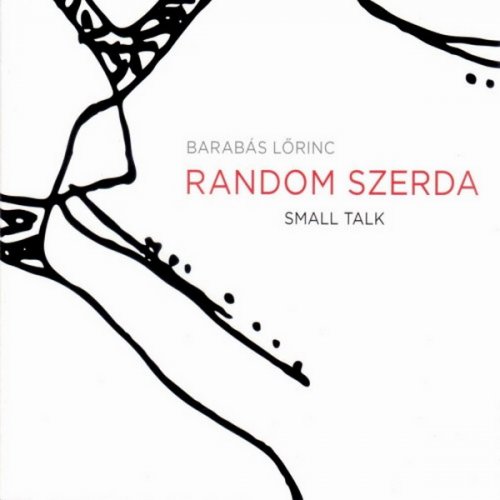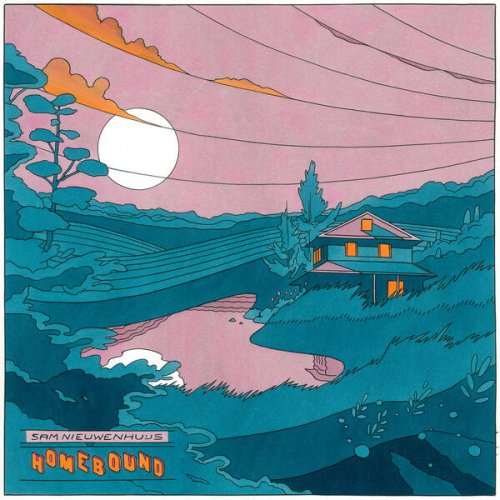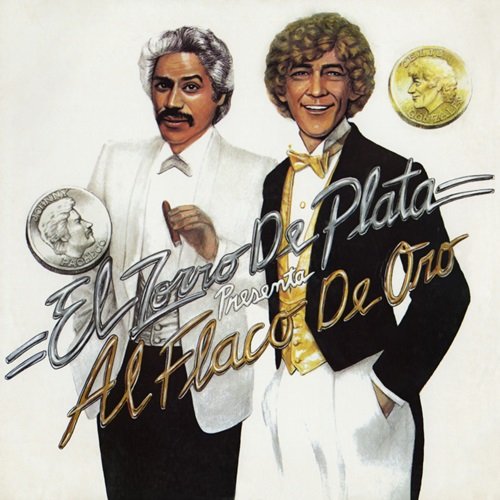Rumon Gamba - Rozsa: Orchestral Works, Volume 1 (2008) [Hi-Res]
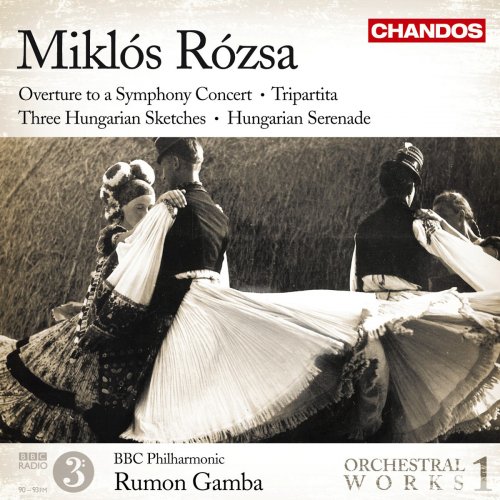
Artist: BBC Philharmonic, Rumon Gamba
Title: Miklós Rózsa: Orchestral Works Volume 1
Year Of Release: 2008
Label: Chandos
Genre: Classical
Quality: FLAC (tracks, booklet) [96kHz/24bit]
Total Time: 1:14:41
Total Size: 1.26 GB / 298 MB
WebSite: Album Preview
Tracklist:Title: Miklós Rózsa: Orchestral Works Volume 1
Year Of Release: 2008
Label: Chandos
Genre: Classical
Quality: FLAC (tracks, booklet) [96kHz/24bit]
Total Time: 1:14:41
Total Size: 1.26 GB / 298 MB
WebSite: Album Preview
01. Overture to a Symphony Concert, Op. 26a (Revised Version)
Three Hungarian Sketches, Op. 14
02. I. Capriccio
03. II. Pastorale
04. III. Danza
Tripartita, Op. 33
05. I. Intrada
06. II. Intermezzo arioso
07. III. Finale. Allegro con brio
Hungarian Serenade, Op. 25
08. I. Marcia
09. II. Serenata
10. III. Scherzo
11. IV. Notturno
12. V. Danza
Rumon Gamba and the BBC Philharmonic here embark on a new orchestral series with music by Miklós Rózsa.
Rumon Gamba says of the project: ‘Having made many discs of the film music by composers whose concert works is well known, for example, Arnold and Vaughan Williams, I thought it would be interesting to look at a very well-known film composer and profile his concert works, which have perhaps been overshadowed by his big-screen successes. The orchestral music of Miklós Rózsa is extremely exciting, passionate and intoxicating, and deserves to be better known.’
Rózsa is one of the giants of the film world, with scores for Ben Hur, Quo Vadis and El Cid to name but a few. Gamba continues, ‘I expect fans of early twentieth-century classical music in general and of the big Hollywood scores alike will find this music arresting and intensely beautiful’.
Despite his many Hollywood film commitments, the composer always made time to write the music that was most important to him, that for the concert hall. Once settled in Hollywood, Rózsa was able to negotiate a beneficial contract which allowed him to spend the summer months writing his serious music at his Italian retreat, and the winter months in Hollywood composing music for films. The four works recorded on this first volume offer a strong impression of his concert style, one which the leading conductors of the day held in high regard. The ebullient Three Hungarian Sketches was the official Hungarian entry at the International Music Festival in Baden-Baden in 1938. The large late Tripartitia, composed in 1971, has an earthy quality but exudes also in places an evocative nocturnal mood. It is complemented by two works in a lighter vein, the Overture to a Symphony Concert and the Hungarian Serenade.
Rózsa developed a unique musical voice highly influenced by his Hungarian roots, and his works often dazzle with virtuosity. The BBC Philharmonic pull out all the stops to play these works with the precision and passion they require. This is the launch of a very special project for Chandos.
Rumon Gamba says of the project: ‘Having made many discs of the film music by composers whose concert works is well known, for example, Arnold and Vaughan Williams, I thought it would be interesting to look at a very well-known film composer and profile his concert works, which have perhaps been overshadowed by his big-screen successes. The orchestral music of Miklós Rózsa is extremely exciting, passionate and intoxicating, and deserves to be better known.’
Rózsa is one of the giants of the film world, with scores for Ben Hur, Quo Vadis and El Cid to name but a few. Gamba continues, ‘I expect fans of early twentieth-century classical music in general and of the big Hollywood scores alike will find this music arresting and intensely beautiful’.
Despite his many Hollywood film commitments, the composer always made time to write the music that was most important to him, that for the concert hall. Once settled in Hollywood, Rózsa was able to negotiate a beneficial contract which allowed him to spend the summer months writing his serious music at his Italian retreat, and the winter months in Hollywood composing music for films. The four works recorded on this first volume offer a strong impression of his concert style, one which the leading conductors of the day held in high regard. The ebullient Three Hungarian Sketches was the official Hungarian entry at the International Music Festival in Baden-Baden in 1938. The large late Tripartitia, composed in 1971, has an earthy quality but exudes also in places an evocative nocturnal mood. It is complemented by two works in a lighter vein, the Overture to a Symphony Concert and the Hungarian Serenade.
Rózsa developed a unique musical voice highly influenced by his Hungarian roots, and his works often dazzle with virtuosity. The BBC Philharmonic pull out all the stops to play these works with the precision and passion they require. This is the launch of a very special project for Chandos.
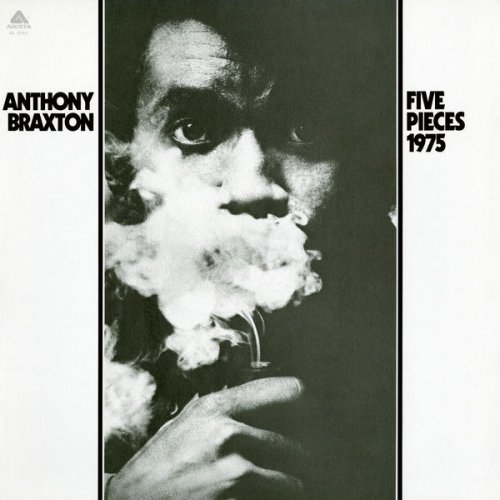
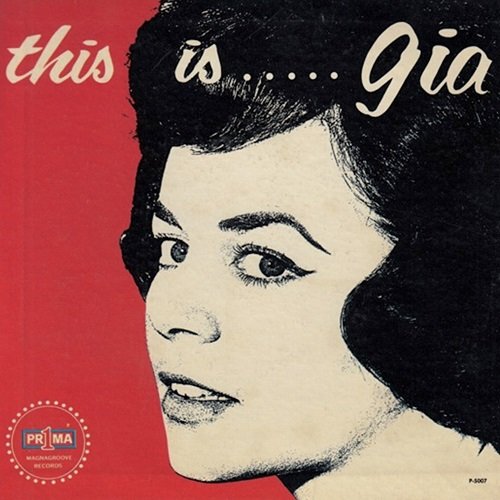
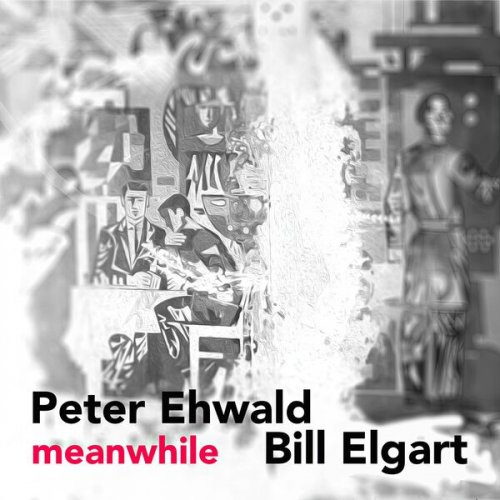
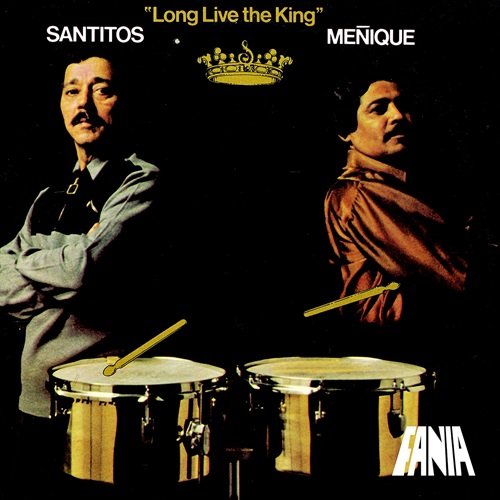
![Clifton Chenier - The King of Zydeco (Live) (1981) [Hi-Res] Clifton Chenier - The King of Zydeco (Live) (1981) [Hi-Res]](https://img.israbox.com/img/2025-12/20/xjfs68k4k2e6nw8a1vz89ft6c.jpg)
